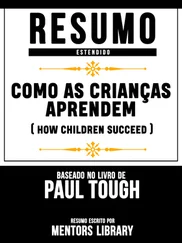3.3 Why do some freelance translators fail?
I work with a lot of beginning translators in my online courses, and when I follow up with students over the months and years after they finish the course, or when I talk to beginning/aspiring translators in general, some of them have “made it” as freelancers and some of them haven’t. Here are a few factors I’ve identified that can cause some freelance translators to be less successful than they might be, or to give up on the business entirely:
• Expecting too much return from too little marketing effort. I get a lot of inquiries from beginning freelancers who are very discouraged because they’ve “applied to over 30 translation companies and received no work.” I know I’ve said this a few (hundred) times before, but here it is again: during my first year as a freelancer, I applied to over 400 translation companies. Then, I sent every single company that responded positively a hand-written note with a business card, thanking them for their response and letting them know that I looked forward to working with them in the future.
• Expecting the startup phase to be shorter than it is. I think six months is the bare minimum that anyone can expect—two months to look for work, two months to do the work and two months to get paid. A year is probably more realistic, and I think that most freelancers reach “cruising speed” after about three years.
• Having weak language skills. Chris Durban, author of The Prosperous Translator (prosperoustranslator.com), often states that it’s hard to develop the linguistic and cultural competence that a translator needs without spending at least a year in your source language country. And don’t hang out with speakers of your target language the whole time you’re there!
• Not putting yourself out there.The simple truth of freelancing is that people cannot hire you if they cannot find you. They can’t refer work to you if they don’t know who you are. So whether it’s in person or online, or preferably both, you have to come out of hiding.
• Getting stuck on the low rate treadmill. This is a tough one. Most beginning translators don’t set out to be underpaid, but working is better than not working, and you have to start somewhere if you want to break in to the industry. Many beginning freelancers tell themselves that in a few months or years, they’ll trade up to better-paying clients. But if you’re translating 10 hours a day just to pay the bills, it’s hard to find that time, so you’re more likely to stick with the low-paying bird in the hand.
• Remaining in denial about how much work it is to be self-employed. A wise self-employed person once said that being an entrepreneur means working 60 hours a week for yourself so that you don’t have to work 40 hours a week for someone else. I’m a firm believer in avoiding perpetual overtime, but the essence of this statement is true. I recently gave a talk on self-publishing, after which many of the attendees commented that the idea sounded intriguing, but “like a lot of work.” Yes! It is a lot of work, but I’m more interested in putting that work into my own project than into lining a traditional publisher’s pockets. The same is true of being a freelancer. It’s a lot of work! But the ability to make your own decisions and take responsibility for your own future makes it worth it.
3.4 Improving your language skills
If you’d like to work as a translator but your language skills are not yet up to par, you have a few options. The best, but most difficult, is immersion: living and working or going to school in a country where your source language is spoken. If you want to improve your French, without a doubt the fastest way to do it is to move to a French-speaking country for a year, work or go to school with native French speakers, and speak only French while you’re there. If this isn’t possible for you, university programs in translation and interpreting do exist in the U.S., although they are much less common than in other countries. However, nearly all medium or large colleges and universities offer advanced courses in the more widely spoken foreign languages. If you’re trying to improve your language skills, be realistic; although it’s certainly far from impossible to learn a new language at age 30, 50 or 70, it’s also not going to happen with a few semesters of night classes. If you’re starting from a beginner level or close to it, two to three years of intensive language study in a college-level program is probably a bare minimum. If you have a solid foundation in a second or third language, for instance you studied it in school for 10 years including several trips to a country where the language is spoken, you might be ready to start translating right away.
Your level of education is also an important factor in launching your freelance translation business. While requirements for different translation jobs vary, nearly all translators have at least a Bachelor’s degree and a high percentage have a Master’s degree or higher. If you want to take the American Translators Association’s certification exam, you need either a Master’s degree or higher or several years of work experience as a translator.
3.5 A translator’s working environment
The translation industry in the United States is heavily geared toward the independent contractor model. In the past, many large companies and even many translation agencies had staffs of in-house translators, but these jobs are now few and far between, and when they do exist would rarely be given to a beginner. In contrast to other professions where newcomers are expected to pay their dues as in-house employees and then enjoy the “reward” of freelancing, the translation industry usually works in the opposite way. Most translators start out as freelancers and may even remain self-employed for their whole careers, while most well-paid in-house translators are hired with years or even decades of experience. It’s important to be realistic about whether the life of a freelancer is for you. While you’ll have a great degree of control over where, when and how much you work, you’ll also give up the security of a steady paycheck, benefits, paid time off, and a pension or employer-sponsored 401K.
Most freelance translators in the U.S. work from a home office, and there is no stigma attached to working from home; translators who rent office space outside the home are definitely the exception rather than the rule. The vast majority of a translator’s work is done on the computer, so it’s important to think about whether this work environment suits you. The almost constant use of a computer makes repetitive strain injury and eye strain some of the few work-related injuries that translators are at risk for.
There are many positive sides to a translator’s work environment. Compared to other work-from-home jobs, translation can be very interesting and well-paying. Translation industry compensation surveys report that the average self-employed freelance translator earns slightly more than $60,000 per year, and income of over $100,000 per year is becoming more common among translators who work very long hours, work exclusively with direct clients or work in high-demand languages or specializations.
It is important to be realistic about the time and effort involved in reaching this level of income. Unless you work in a language pair and/or specialization that is extremely in demand, it may take a year or more to develop a regular client base that will allow you to replace the income from a previous full-time job, and you will probably need to send out several hundred resumes during that time. Before starting your freelance translation business, it’s important to determine if you have the financial resources, time and energy to get through the startup period to the point where you are earning a reasonable and steady income.
Читать дальше
![Коринн МакКей How to Succeed as a Freelance Translator [calibre 3.46.0] обложка книги](/books/402693/korinn-makkej-how-to-succeed-as-a-freelance-transl-cover.webp)


![Джон Ирвинг - Našlė vieneriems metams [calibre]](/books/384320/dzhon-irving-naŠle-vieneriems-metams-calibre-thumb.webp)
![Джонатан Димблби - Barbarossa - How Hitler Lost the War [calibre]](/books/385421/dzhonatan-dimblbi-barbarossa-how-hitler-lost-the-w-thumb.webp)







